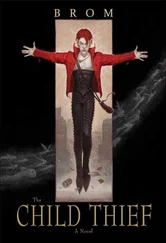Shortly before we reached the stream he held a finger to his lips, hissing shhh , and crept to the edge of the ravine. His pants and shirt dusty amid the grass and nettles, he stuck out his head under the branches of a tree.
A few minutes later, gaping and intoxicated by what he saw, he whispered throatily, “Now it’s your turn.”
I looked.
A woman was bathing. She was naked underneath the green slip that clung to her body, outlining her curves. Standing in the middle of the stream with water up to her knees and rosy legs like a waterbird’s, her drooping neckline revealed two large milky breasts. Her expression was childlike, and the hair on her bosom resembled plumage.
With both hands she splashed water on her face and soaped her head. She squinted in our direction, seeming not to see us. The foam whitened her hair, like a hat drying in the sun.
Suddenly she raised her slip and with a clay vessel threw water between her thighs. Facing us now, her movements were slow, even lackadaisical.
She was unembarrassed, although I sensed that she saw us when she reached for a bar of soap among the pebbles. Her skin became covered in goose bumps, as if despite the voluptuousness of her body it too was vulnerable to cold and death.
But since she didn’t cover herself though she looked right at us, I thought she hadn’t seen us after all.
Then she took off her slip and was completely naked. As she bent over to pick up the clay vessel her breasts hung down.
All of a sudden Ricardo el Negro made noise shifting his feet. And the woman, who had surely known all along that we were there, yelled, “That’s how the pill is sweetened!” and made an obscene gesture.
We broke into a run.
Sometimes I thought that if Silvia were to spend the night with me in a room, both of us lying in bed, naked, getting closer and closer, perhaps we’d make love. But in order to be together in a room, in a bed, lying naked, the occasion had to arise. And that occasion would only arise if she were in danger at the moment of lying down.
Moreover, for that to happen, Martians had to land in Contepec. And the villagers would have to flee, leaving the two of us on our own, for inexplicable reasons, in a house, in a room, in a bed.
Nevertheless, as the days passed and the occasion never arose, I realized that it was easier to talk to Silvia about what I wanted than for the Martians to land.
All I had to do to let her know what I wanted was to tell her. However, given the indifferent way she looked at me, or rather, didn’t look at me, it was difficult to tell her. And because the subject didn’t have anything to do with our conversation, no opportune moments arose for such a serious announcement.
For there are people from whom we are so far removed, although they might seem physically near, that we can see them every day and never cross the threshold of their being. Our skins, like walls, and our bodies, like houses, keep us separate every day, like neighbors whose front doors face different directions.
And as in the fable of the wind and the sun where the two compete to strip a traveler of his clothes, and after the wind tries futilely to tear them off with gusts, the sun by shining hot makes him remove them himself, so I understood that it was easier to get along with women who respond with sympathy to our enthusiasm than to triumph in the advances with which we pursue the Silvias of this world, seen over the years looking out of the windows of their homes, each day farther away from us, without our ever entering their eyes, even for a moment.
MY UNCLE CARLOS brought his wife, Lucinda, and their three sons from Puebla, two boys who walked and one still suckling. The two walkers spent their first days in Contepec yelling, “Daddy, Daddy!” wherever they went.
The older one, Julián, shared so many of his parents’ features that whenever they saw him people remarked, “He’s got his father’s eyes,” “His mother’s eyebrows,” “His father’s chin,” “His mother’s nose,” “His father’s ears.”
The second son, César, went around touching the hen, the wall, the table, a guest’s dress, the dog’s snout, in an insatiable appetite for testing the consistency of things with his hands.
Augusto, the baby, carried about by my uncle in a white blanket, protruded from his arms like the branch of a tree. Patiently, he showed him the world: “Glass,” “Mirror,” “Foot,” “Shoe,” “Boy.” And he opened Lucinda’s boxes on the dresser for him, revealing before his eyes rings and necklaces, buttons and needles.
Lucinda dressed all three in the same fabrics as her dresses, so it seemed they were in uniform, and you had only to look at them to know whose children they were.
A week after arriving, Lucinda told my uncle she would probably never get used to life in such a small village. This prompted my uncle’s immediate exaltation of Contepec’s virtues: “Such pure air!” “Such a clear sky!” “Such clean water!”
If he saw her looking despondent, he tried to convince her, in an imaginary discussion in which only he became impassioned and aggrieved, working himself into anger at her silence. Whenever she was silent he felt she was far away, hungering for men, and to intrude on her daydreaming he badgered her with pronouncements such as, “What decent men there are in Contepec!” “Women in small towns are so faithful!” “What tranquillity!”
But she made no answer and went to wash the dirty dishes, dragging her feet as she did.
Julián would follow her, while César watched from the kitchen door; his only worry was that my uncle might lose sight of him. He was always racing after him, yelling to him in the street to wait, convinced that if his father got a few steps away, he would abandon him.
In the afternoons my uncle stood in his doorway bargaining with the campesinos over the nags he wanted to sell. However, he never set foot outside unless he thought someone was going to buy one.
He carried on him the smell of his cows, his goats, and his mules. His dogs, old and scrawny, small and ugly, toothless and skittish, prowled the streets and stood guard at his door, or pressed their snouts to the window.
Animals were always present in his conversations. When he told the baker about a young man who’d slept with the policeman’s wife, he said, “The bull mounted the cow”; and when he saw the doctor go by with his girlfriend, he remarked, “The nag and his mare.” About his son Julián’s hair, he said, “It’s as soft as lamb’s wool.”
No sooner did he learn that my father had started selling groceries in his store than he stocked them too. When he heard we were including hardware, he ordered hammers, nails, and locks. When he found out that my father had been successful with his movie theater, he proposed to a group of storekeepers from a neighboring village that they open a theater that would rival ours. Chatting with his neighbors, he sought information about my father’s projects and went pale and short of breath when he heard business was good. His wife shouted at him to stick to his mules and oxen and stop competing. But earning money in a transaction in which he didn’t rival my father did not satisfy him. It was better to earn little or even lose than to stop what he was doing. Only rage, resentment, and revenge motivated him. He was seen rising early, going about the village streets, talking to people, traveling to other towns, promoting the sale of animals, all spruced up in his best suit. His eyes shining with rage or narrowed by meanness, he persisted in his attempts to ruin my father with stupid ventures and by bad-mouthing us.
Meanwhile, he complained to the baker that his wife oversalted the soup, and that the desserts she made were tasteless and the cakes always burnt. When they had guests in the living room and she sat with parted legs facing some man, pretending to be cold he would say, “Close the window, Lucinda.” But there was no window in the living room.
Читать дальше












